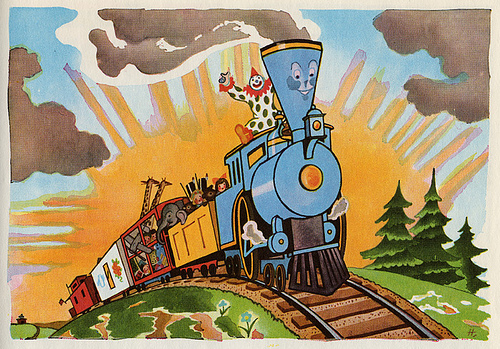 “Don’t you want to do something great for God?” “Since God did so much for me I want to do something great for Him.” American evangelicals have often heard and perhaps said things such as these. Whether spurred on by ambition or by guilt they are a part of a narrative that we can no longer see for all the trees.
“Don’t you want to do something great for God?” “Since God did so much for me I want to do something great for Him.” American evangelicals have often heard and perhaps said things such as these. Whether spurred on by ambition or by guilt they are a part of a narrative that we can no longer see for all the trees.
Stories are wonderful indicators of a cultural mindset. You will find very different values and perspectives if you look at stories from around the world and throughout history. Whether these are myths, novels, urban legends, or even historical accounts they will reflect the culture in which they were created. In America we find particularly endearing the stories of the underdog, the pathetic sports team, the failed entrepreneur, the little engine that could. We like to see hope and willpower overcome obstacles. We want the team to come back and win, the entrepreneur to strike it rich, the little engine that could make it up the hill. This sort of narrative feeds off the American culture and in turn drives that same culture.
The question for the American Christian is whether one is more American or more Christian. Has the Biblical narrative or the American narrative had more influence on the way one thinks? We find it easy to think that God has some grand course of action in plan for us. If we could only discover what his plan was we would certainly embark on a whirlwind of ministry, shaking the world for Christ. If your culture taught you that you were such a unique individual that the work of the Holy Spirit could not effectively go on without you or that your true calling is to rise to greatness please hear a different narrative.
Some in the Bible were called to do things of great moment. However the Bible does not tell the stories of great men but of a great God who chose and worked through them. The message of the Bible is not a call to rise to the challenge or to do what the world doesn’t think you capable of: the Bible calls you to die and be small.
Jesus told his hearers to follow Him by taking up their cross. He effectively said, “I go to be killed. Who will come with me?” Christianity is death.
Jesus’ disciples argued over which of them would be the greatest in the kingdom of God. He showed them that His was a kingdom the likes of which they had never conceived. He taught them that those who were the greatest would serve rather than be served. Jesus called John the Baptist the greatest of men and said that John was the threshold of prophetic history and yet John said of Jesus, “He must increase but I must decrease.”
When we think much of ourselves we will think much of our motives. We may tell ourselves that we are taking on some particular Christian endeavor out of our sheer love for people. But when in our pride we think ourselves magnanimous and then see magnanimity as reflective of how wonderful we are and our pride then blinds us from seeing our prideful motives we have a problem. Ask yourself if you are doing something for your glory or for God’s.
As Americans we are driven and goal-oriented. I don’t think there is anything wrong with this as long as the drive is from God and the goal from His word. But the goals we often set for ourselves are those things that we assume the Bible must say and yet the Bible continually surprises us.
The Bible does indeed call us to something great in that it is beyond our human nature. It calls us to humility, to quiet service one for another. It calls us to be at peace with and in submission to one another. When it calls for a driven pursuit it has in mind the pursuit of love, peace, righteousness, and spiritual gifts (II Timothy 2:22b; 1 Corinthians 14:1; Romans 14:19). When it speaks of desiring another person it does not intend that we absorb them into our pride but that we desire to give ourselves to them for their good (1 Thessalonians 2:8). The Christian community is indeed in need of growth and change. It certainly needs goals and a drive. But the goal should be to be a church of quiet servants who love one another. God does have dynamic things in store for the believer but nothing will ever be more dynamic than a community that has the true heart of Christ.
If your Christian goal is to be bigger, faster, louder, busier, and more awe-inspiring you are missing a narrative of Christlikeness. If you think of yourself as The Little Christian That Could you may not be the little Christian that should.